Who is Jeffrey Donaldson? The DUP leader accused of historical sex offences
Sir Jeffrey Donaldson has quit as leader of the Democratic Unionist Party with immediate effect after the DUP said he had been charged with allegations of a historical nature.
Northern Ireland’s longest-serving MP was suspended from the party pending the outcome of a legal process, while Gavin Robinson has been appointed interim party leader.
His resignation will have a huge impact on British and Irish politics and comes just weeks after he moved to restore power sharing in Northern Ireland after nearly two years of protest.
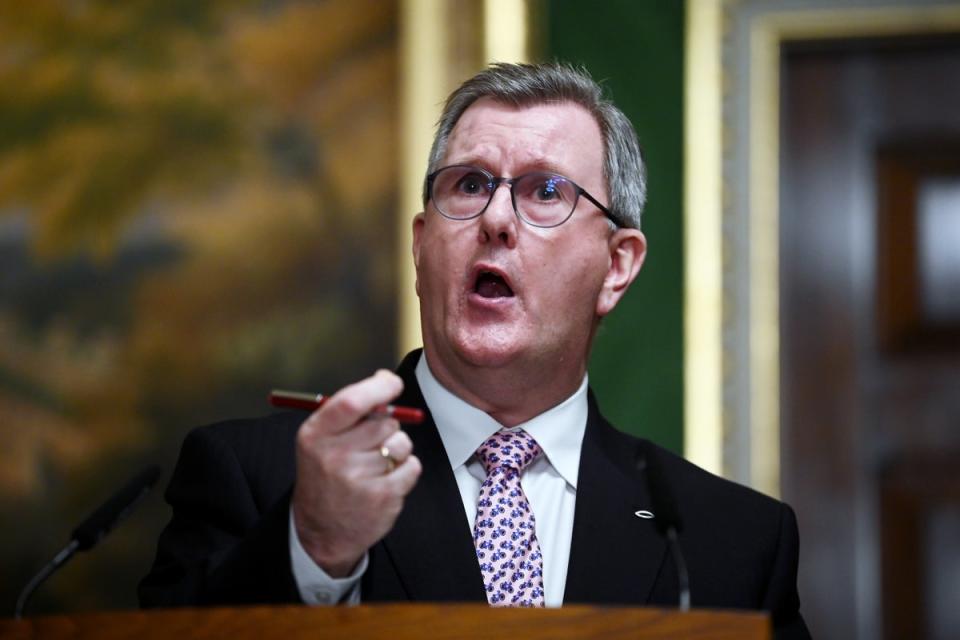
The Independent looks at the life and career of the influential unionist.
Sir Jeffrey was born in Kilkeel, the southernmost town in Northern Ireland in County Down. He has talked about growing up in the Mourne area as the eldest of five boys and three girls, attending the local Presbyterian Church And having a “traditional, rural, home-centred upbringing”.
But he has also said his childhood innocence was “shattered” by the onset of the Troubles. “I remember vividly, almost as if it were yesterday the murder of my cousin Samuel Donaldson, an RUC constable,” he explained.
Samuel Donaldson was one of two of Sir Jeffrey’s cousins killed by the Provisional Irish Republican Army while serving in the Royal Ulster Constabulary.
When he was 16, Sir Jeffrey joined the Orange Order, and two years later he became involved in the Young Unionist movement.
And he went on to serve with the Kilkeel company of the 3rd Battalion Ulster Defence Regiment (3 UDR), rising to the rank of corporal.
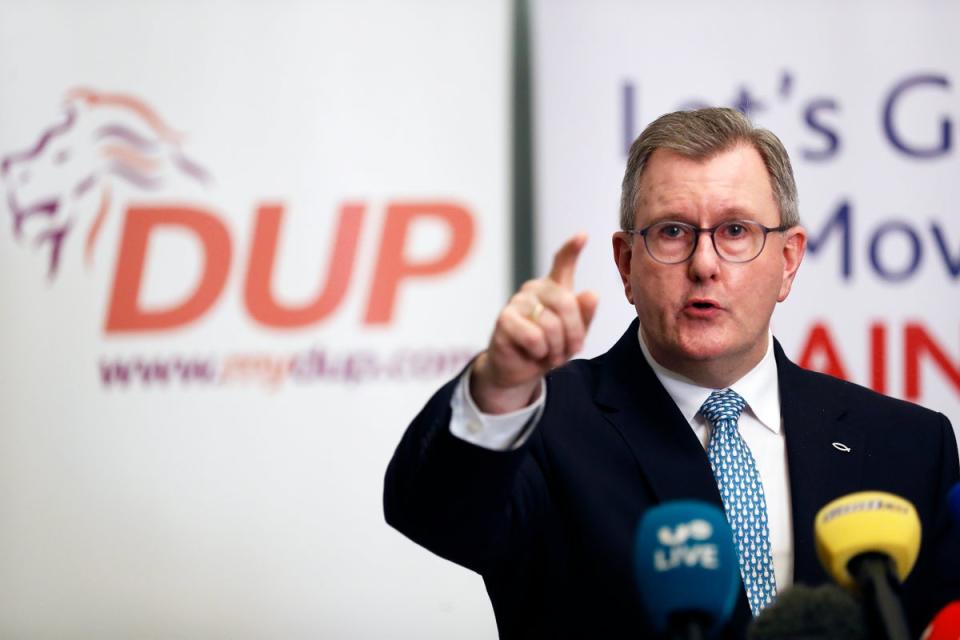
Sir Jeffrey has been married to his wife Eleanor for over 25 years and the couple have two daughters. His resignation comes after an almost 40-year run in politics.
That career started with the Ulster Unionist Party (UUP) and in 1985, aged 22, he was the youngest person to be elected to the Northern Ireland Assembly.
But the 61-year-old’s relationship with former UUP leader David Trimble deteriorated when he led a walkout of the 1998 peace talks after opposing the early release of republican and loyalist prisoners.
He left the party and joined the DUP in January 2004, becoming leader in July 2021 after the resignation of Edwin Poots.
He had originally put his name forward to become leader after Arlene Foster was ousted following internal party unrest, but was narrowly defeated by Mr Poots in the DUP’s first-ever leadership election months earlier.
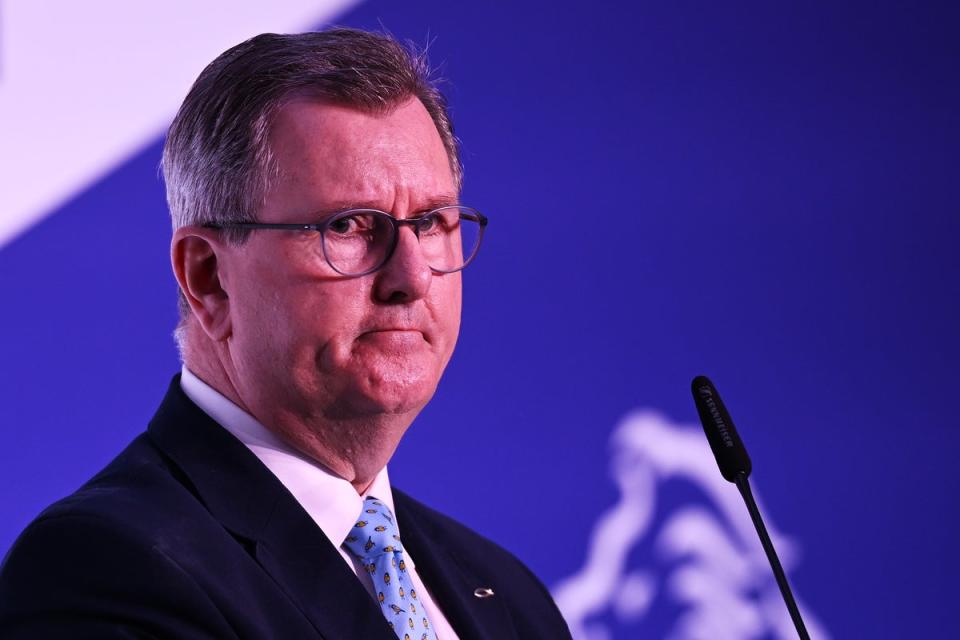
He was recognised by the Queen in her 2016 Birthday Honours and was given a knighthood for his political service.
Sir Jeffrey’s leadership saw him steer the party’s two-year boycott of Northern Ireland’s political institutions in protest over post-Brexit trading arrangements.
He assumed leadership of the DUP during a turbulent time for the party which saw it boycott Northern Ireland’s political institutions in protest over post-Brexit trading arrangements.
Unionists had long protested against requirements for checks on goods travelling between Great Britain and Northern Ireland, saying they created an Irish Sea border.
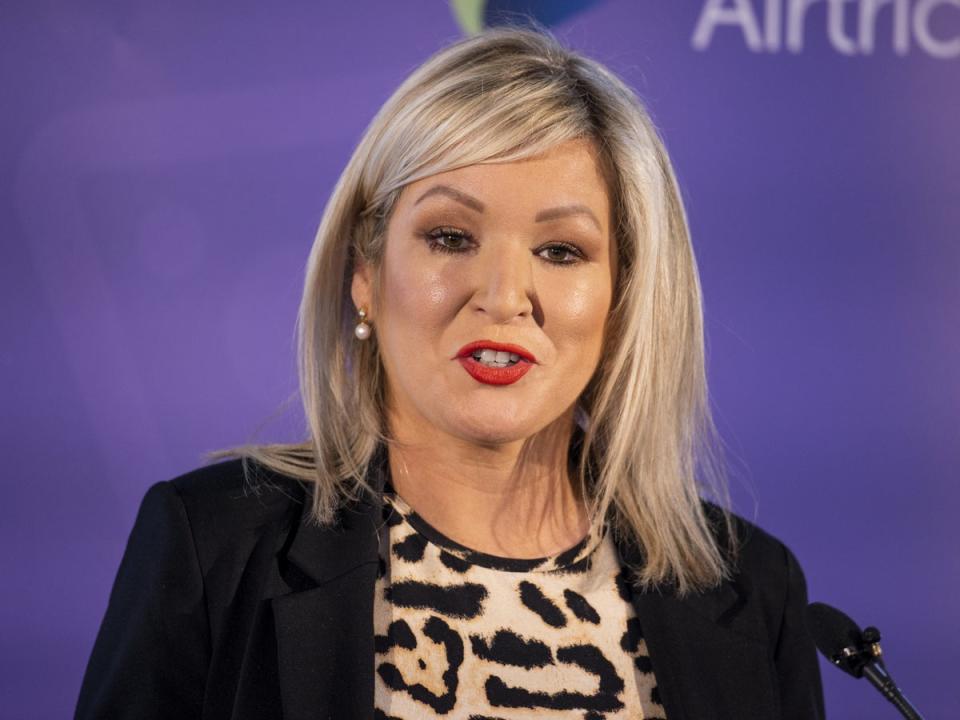
Believing that the Government was not responding fast enough to his concerns, Sir Jeffrey collapsed the Stormont powersharing institutions in 2022.
After protracted negotiations, the party agreed to return to Stormont in February following the agreement of a new deal on trade arrangements and a series of measures aimed at providing assurances around Northern Ireland’s constitutional position within the United Kingdom.
His resignation has sparked a leadership contest and any fallout could have a huge impact on politics in Ireland and Northern Ireland.
The DUP is under significant pressure from Sinn Féin, which is the most popular party in the Republic of Ireland ahead of a general election next March.
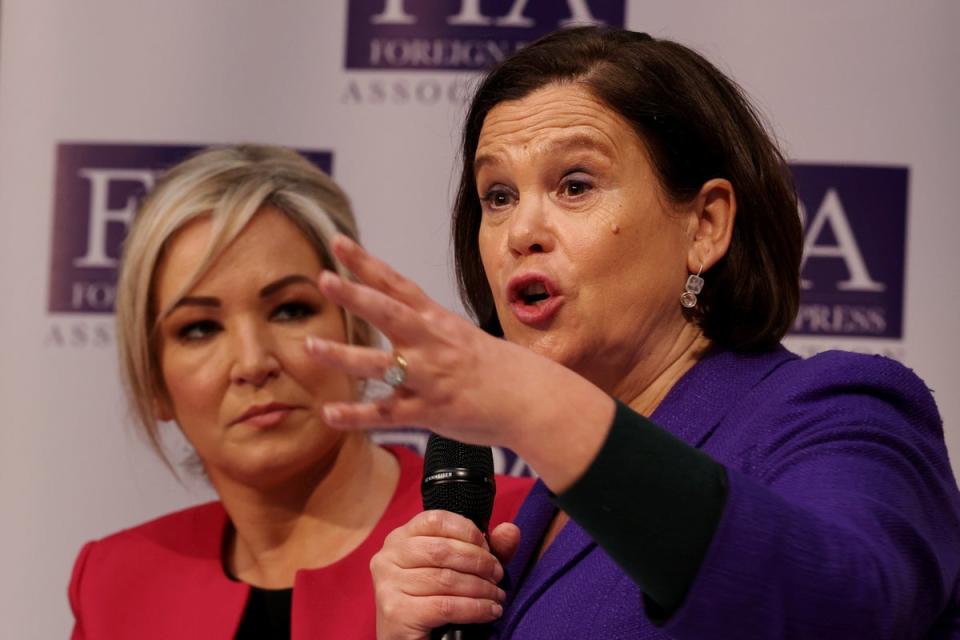
In February, Northern Ireland saw the first Republican sworn in as first minister in Michelle O’Neill.
After assuming office, Ms O’Neill said she expects a vote on Irish unity to take place in the next decade.
Sinn Féin leader Mary Lou McDonald has said Irish unity is now within “touching distance”.


